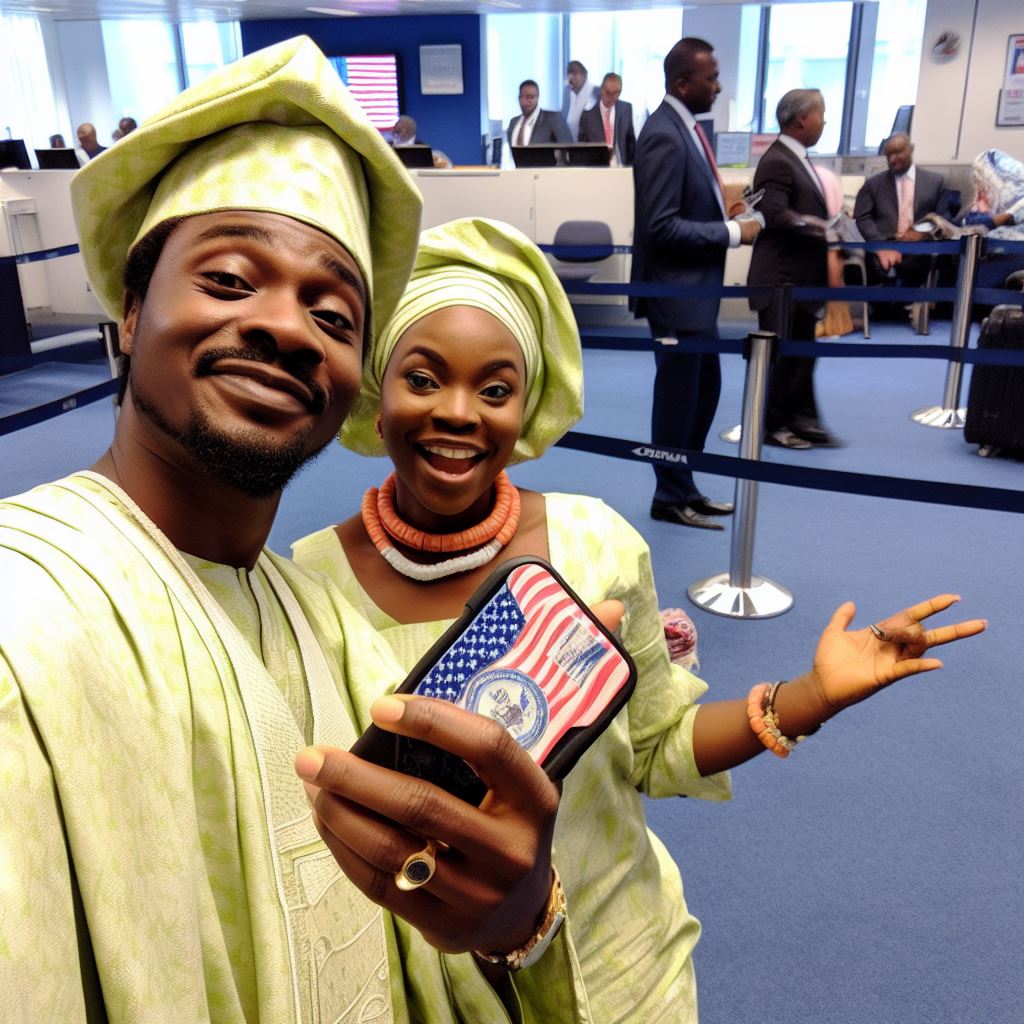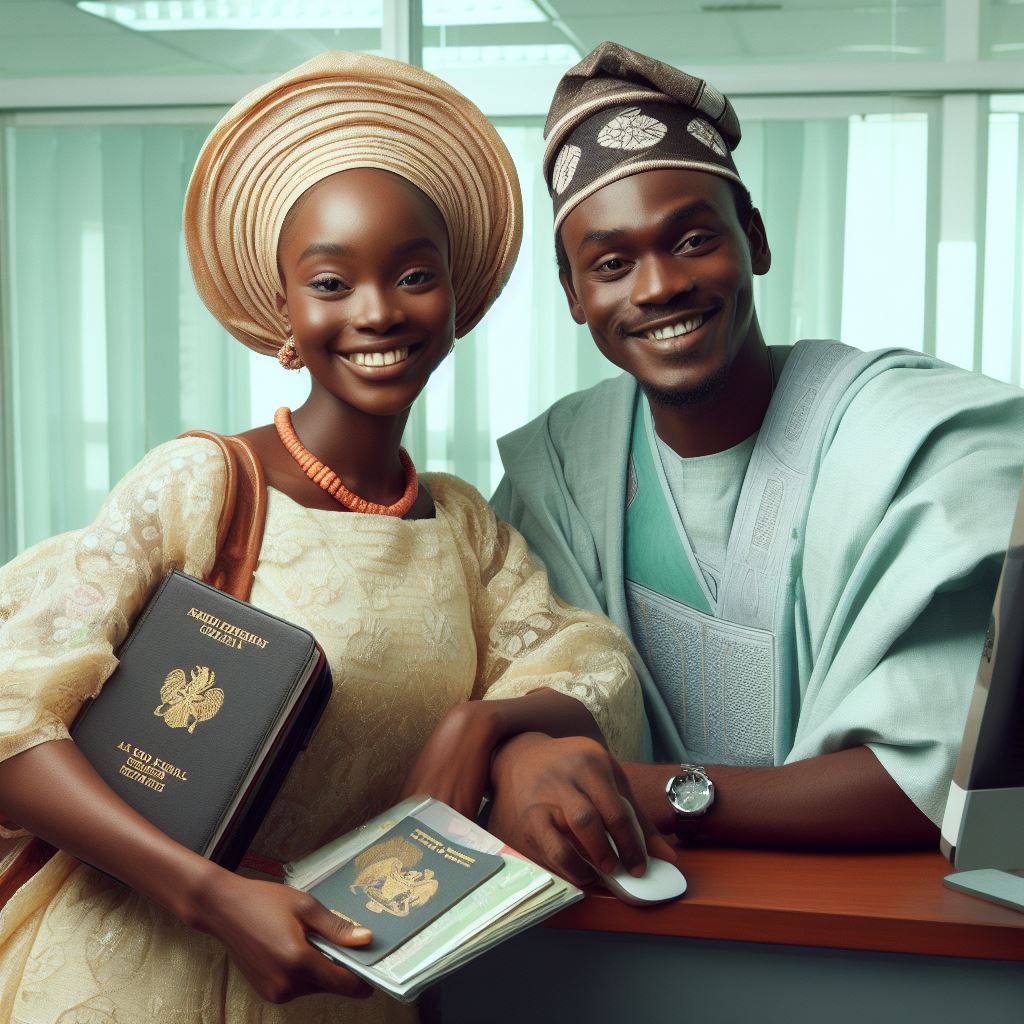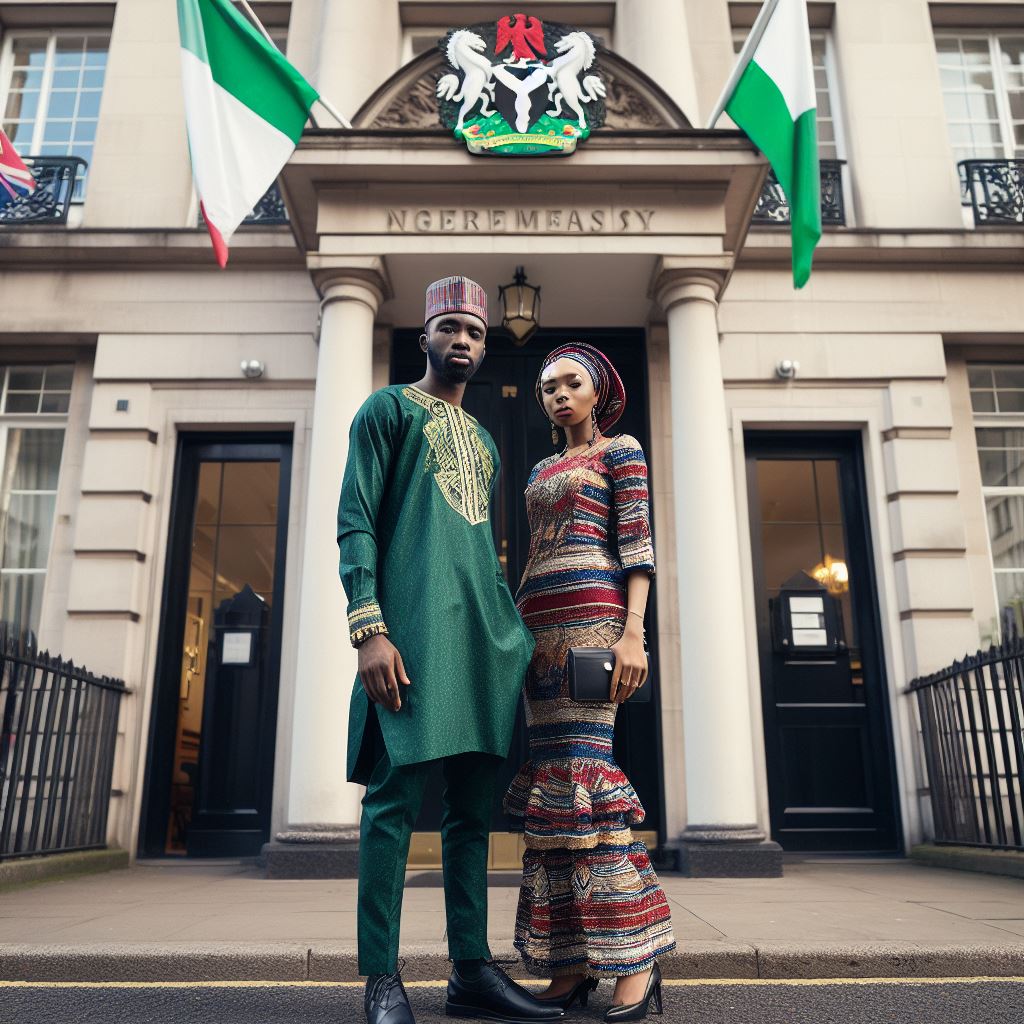Introduction
Let’s explore love and law: Balancing marriage and citizenship goals.
Love and Law: Balancing Marriage and Citizenship Goals is a topic that delves into the complex relationship between marriage and citizenship goals.
Understanding this relationship is crucial as it not only impacts individuals but also society as a whole.
In the intricate tapestry of life, there are few endeavors as profound and transformative as the intertwining of love and the pursuit of citizenship.
This union of hearts transcends borders, encompassing not only the profound personal connection between two individuals but also the legal and bureaucratic pathways that must be navigated for a shared future.
In this journey, couples find themselves at the crossroads of devotion and documentation, striving to harmonize the intricacies of marriage with the demands of the law.
In this blog post, we will explore three main points: the legal implications of marrying a citizen, the challenges faced by binational couples, and strategies for achieving a balance between love and law.
This delicate equilibrium, where love and legality converge, forms the nucleus of our exploration.
Understanding Marriage in Nigeria
Cultural significance of marriage in Nigeria
- Marriage holds great cultural significance in Nigeria, as it is seen as a union of families.
- It is a celebration of love, commitment, and the continuation of family lineage.
- Marriages in Nigeria also serve as an avenue for social and economic alliances between families.
- Traditional customs, such as bride price and dowry, further emphasize the cultural importance of marriage.
- The union between two individuals is not only seen as a personal commitment but also a community affair.
Legalities and requirements for getting married in Nigeria
Before getting married in Nigeria, couples must comply with legal requirements.
Both individuals must be of legal age, which is 21 years for a man and 18 years for a woman.
Consent from both parties and their parents/guardians is also required.
Couples must provide proof of identity, such as birth certificates or international passports.
Registration of the marriage with the appropriate government authorities is mandatory.
Failure to fulfill these requirements can render the marriage invalid under Nigerian law.
Roles and expectations within Nigerian marriages
Nigerian marriages are often rooted in traditional gender roles and expectations.
Men are typically expected to be the providers and protectors of the family.
Women, on the other hand, are expected to take care of the household and children.
However, these roles are evolving as more Nigerian women pursue education and careers.
Communication, compromise, and mutual respect are vital for a successful Nigerian marriage.
Expectations of fidelity and loyalty are highly valued and infidelity can lead to marital breakdown.
Extended family plays a significant role in Nigerian marriages, with strong ties and obligations.
In short, marriage holds immense cultural significance in Nigeria, symbolizing the union of families and the continuation of lineage.
While legal requirements must be adhered to for a marriage to be valid, traditional customs and expectations shape Nigerian marriages.
These include traditional gender roles, expectations of fidelity, and the importance of extended family.
It is crucial for individuals navigating the balance between marriage and citizenship goals to understand and respect these cultural nuances.
By recognizing and honoring both love and law, couples can create a harmonious union that embraces their Nigerian heritage while pursuing their citizenship goals.
The Impact of Citizenship Goals on Marriage
Marriage and citizenship goals are closely intertwined, and understanding their impact is crucial for both individuals and policymakers.
Marrying for citizenship can provide opportunities for a better life, but it is essential to examine the motivations behind such decisions.
Exploring the motivations behind marrying for citizenship
Many individuals choose to marry for citizenship because it offers the promise of a brighter future and improved social status.
The prospect of obtaining citizenship can provide a sense of security and stability, particularly for those facing economic challenges or restricted opportunities in their home country.
Financial benefits, such as access to employment and social welfare, further contribute to the appeal of marrying for citizenship.
Challenges faced when balancing marriage and citizenship goals
However, challenges arise when trying to balance marriage and citizenship goals.
The process of obtaining citizenship through marriage is often complex and time-consuming.
Immigration authorities may scrutinize the authenticity of the relationship, resulting in skepticism or suspicion.
Couples must navigate the delicate balance between maintaining a genuine, loving relationship while also fulfilling the requirements of immigration authorities.
The pressure to constantly prove the legitimacy of the marriage can strain the emotional bond between partners and create additional stress.
Moreover, cultural and language barriers can further complicate the marriage and immigration journey.
Couples from different backgrounds may struggle to communicate effectively, understand each other’s traditions, or integrate into each other’s communities.
These challenges require patience, understanding, and a willingness to navigate differences together.
The role of immigration policies in influencing marriage decisions
Immigration policies significantly influence individuals’ decisions to marry for citizenship.
Stringent laws and limited immigration options can make marriage the only viable path to legal status for some.
Each country has specific requirements and conditions that couples must fulfill to qualify for citizenship through marriage.
Changes in immigration policies can impact the availability and accessibility of marriage-based citizenship, potentially limiting opportunities for couples seeking this route.
Balancing the prevention of fraudulent marriages with respect for genuine relationships is crucial for policymakers when formulating immigration policies.
In fact, the motivations behind marrying for citizenship, the challenges faced in balancing marriage and citizenship goals, and the influence of immigration policies all contribute to the complex dynamics at play.
It is important for individuals contemplating such unions and policymakers responsible for shaping immigration laws to carefully consider these factors.
Ultimately, finding a balance between love, personal aspirations, and legal pathways is key to navigating the intricate relationship between marriage and citizenship.
Read: Interviews & Documentation: Preparing for the Citizenship Process
Balancing Love and Law
Importance of love and emotional connection in a marriage
- Love is the cornerstone of a successful marriage, providing emotional support and intimacy.
- Without love, a marriage becomes merely a legal contract, lacking depth and fulfillment.
- Emotional connection nurtures a sense of belonging and builds a strong bond between partners.
- Love fosters understanding, compassion, and empathy, essential elements for a harmonious relationship.
Building a strong foundation of trust and communication
- Trust is the foundation on which a healthy marriage thrives, ensuring openness and honesty.
- Open and effective communication becomes the bridge that connects partners and resolves conflicts.
- By fostering trust and communication, couples can tackle challenges and maintain a loving partnership.
- A strong foundation empowers couples to face legal and citizenship concerns with unity and resilience.
Making compromises between marriage and citizenship goals
- Balancing marriage and citizenship goals can present unique challenges, requiring compromises.
- Legal obligations may demand sacrifices, but prioritizing the marriage and emotional connection must prevail.
- Creating a joint vision and setting common goals helps align marriage and citizenship aspirations.
- Flexibility and understanding are essential when navigating the complexities of love and law.
List of Steps to Achieve Balance
- Define shared priorities: Discuss and identify the most important values and goals for your marriage.
- Understand legal requirements: Familiarize yourselves with the laws and regulations that affect your citizenship goals.
- Communicate openly: Share your thoughts, fears, and expectations regarding both marriage and citizenship.
- Seek professional guidance: Consult immigration attorneys or legal advisors to understand the legal implications.
- Create a timeline: Develop a plan to balance marriage and citizenship aspirations over a realistic timeframe.
- Explore compromises: Brainstorm creative solutions that accommodate both marriage and citizenship goals.
- Support each other emotionally: Provide emotional support during challenging times to maintain a strong bond.
- Maintain a positive attitude: Encourage each other and celebrate small victories along the way.
- Regularly reassess and adjust: Continuously evaluate your progress and adapt your approach as needed.
- Celebrate achievements: Acknowledge and celebrate milestones achieved in both marriage and citizenship journeys.
Achieving a balance between love and law is a delicate process requiring open communication, trust, and compromises.
Emphasizing the importance of emotional connection and building a strong foundation facilitates navigating the challenges presented by legal obligations.
By following the steps outlined, couples can maintain a harmonious relationship while pursuing their citizenship goals.
Remember that love is the driving force that propels individuals to overcome obstacles and achieve their dreams together.
Read: Potential Pitfalls: Citizenship Through Marriage in Nigeria

Legal Considerations in Marriage and Citizenship
Understanding the legal implications of marriage and citizenship
- Knowing the legal ramifications of marriage and citizenship is crucial for individuals.
- Marrying a foreign national can have significant implications on immigration and citizenship status.
- Understanding the legal rights and responsibilities that come with marriage is essential for couples.
- Marriage can affect tax obligations, property rights, and other legal aspects of a person’s life.
Navigating dual citizenship and its impact on marriage
- Dual citizenship arises when an individual holds citizenship in two different countries.
- Dual citizenship can complicate matters when it comes to marriage and citizenship goals.
- Some countries do not recognize dual citizenship and may require individuals to renounce one citizenship.
- Conflict may arise when one partner wants to retain dual citizenship while the other does not.
- Couples facing this issue should seek legal advice to navigate the complexities of dual citizenship.
Seeking legal advice for couples with conflicting marriage and citizenship goals
- Couples with conflicting marriage and citizenship goals should consult with an experienced immigration lawyer.
- A lawyer can assess the individual circumstances and provide guidance on the best course of action.
- Legal advice can help couples understand the options available to achieve both marriage and citizenship goals.
- Lawyers can assist in preparing the necessary documents and navigating through the complex legal processes.
- Having a legal expert on board can alleviate stress and increase the chances of a successful outcome.
In general, understanding the legal implications of marriage and citizenship is crucial for couples seeking to balance their marriage and citizenship goals.
Marrying a foreign national can have significant effects on immigration and citizenship status, including tax obligations and property rights.
Dual citizenship can complicate matters, especially when one partner wants to retain dual citizenship while the other does not.
Seeking legal advice from experienced immigration lawyers is essential for couples with conflicting marriage and citizenship goals.
Lawyers can provide guidance, assess individual circumstances, and assist in navigating through complex legal processes.
With proper legal support, couples can work towards achieving both their marriage and citizenship goals successfully.
Read: True Stories: Journeys to Nigerian Citizenship by Marriage
Delve into the Subject: The Dynamics of Polygamous Marriages in Nigerian Culture
Success Stories: When Love and Law Align
Real-life examples of couples who successfully balanced love and law
- John and Maria: John, a US citizen, and Maria, a foreign national, navigated immigration laws to stay together.
- Sarah and Ahmed: Despite cultural barriers, Sarah and Ahmed overcame legal hurdles to build a life together.
- David and Sofia: David’s commitment to Sofia led him to undertake the complicated process of sponsoring her for citizenship.
- Michelle and Juan: Michelle and Juan faced long separation due to visa issues but persevered to finally reunite.
Lessons learned from these success stories
- Patience and perseverance are crucial when dealing with the complexities of marriage and immigration.
- Seeking professional guidance and legal advice can make the process smoother and more manageable.
- Maintaining open communication and supporting each other emotionally and mentally is vital.
- Adapting to cultural differences and being understanding can help couples overcome challenges.
Encouragement and hope for couples facing similar challenges
- Remember that many couples have faced similar obstacles and successfully achieved their marriage and citizenship goals.
- Stay positive and believe in your love and commitment to each other; it can help you through the toughest times.
- Seek support from online communities, support groups, or organizations that specialize in marriage and immigration matters.
- Understand that the process may be long and challenging, but with determination, you can overcome any hurdles.
- Celebrate small milestones along the way, such as receiving a visa or completing a step in the citizenship process.
Love and law do not have to be at odds when it comes to balancing marriage and citizenship goals.
The success stories of various couples demonstrate that with dedication and the right approach, it is possible to navigate through legal complexities while preserving the love and unity within a relationship.
By learning from these examples, couples facing similar challenges can find encouragement, support, and hope throughout their journey.
Read: Busting Myths: Nigerian Marriage and Citizenship Facts
Conclusion
In this blog post, we explored the delicate balance between marriage and citizenship goals.
We discussed how love and law intersect in the lives of individuals who want to marry someone from a different country.
We highlighted the importance of understanding the legal implications and requirements involved in obtaining citizenship through marriage.
It is crucial to be well-informed and prepared to navigate the complex process.
Furthermore, we emphasized the significance of open communication and shared ambitions between partners.
Both individuals need to be on the same page regarding their marriage and citizenship aspirations.
Finding a balance between marriage and citizenship goals is crucial for a successful and harmonious relationship.
It requires compromise, patience, and a deep understanding of each other’s needs and desires.
We must remember that while it is essential to pursue our personal dreams and aspirations, we should not lose sight of the love and commitment that brought us together in the first place.
Striking a balance is key to maintaining a healthy relationship.
As we conclude this blog post, let us reflect on the following question: How can we navigate the complexities of marriage and citizenship without compromising the love and respect we have for one another?
It is crucial to continually assess and revise our priorities, making sure that our actions align with our values and the well-being of our relationship.
We encourage you to share your thoughts and experiences in the comments section below and join us in a collective exploration of finding balance in love and law.




